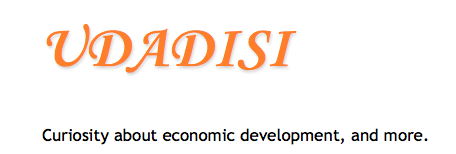This article by Cantoni et al., examines the way in which a new school curricula introduced by the Chinese government in the 2000s persuaded high-school students towards certain attitudes and believes: for example, increased trust on the government and more scepticism of markets - although there are many more categories. The authors explain how important school curricula, and more specifically, textbooks are to shape students (or young people) views. Indeed they are more powerful than traditional media. The authors administered surveys to around 2,000 students at Peking University who came from different provinces and graduated in different years. That temporal and geographic diversity allowed the authors to have several controls and to isolate the effect of the new curricula.
From the conclusions:
Our findings provide support for three broad theories of the roles played by school curricula in shaping political attitudes. First, and most broadly, they suggest that the state can effectively indoctrinate students. Chinese students who studied under the new curriculum viewed Chinese political institutions as more democratic; trusted a broad range of government officials more; believed in extending influence over government policy to a broader group of (educated) people; and, were more skeptical of free markets. These are precisely the sorts of outcomes that scholars suspicious of elite control of educational institutions would fear (for example, Freire, 1970; Bowles and Gintis, 1976; Lott, Jr., 1999). . .
But there is also a brighter side to our findings: scholars who have argued that education can be crucial to the development of a functional democracy (e.g. Dewey, 1916; Lipset, 1959; Glaeser et al., 2007) also find support in our results, which suggest that educational content can shape students’ views of political institutions. Finally, our results provide weaker support a range of historical work arguing that education can play a crucial role in forming national identities (Weber, 1976; Clots- Figueras and Masella, 2013; Alesina and Reich, 2013): the new curriculum strengthened minority students’ views of themselves as “Chinese” (though not always statistically significantly so).The directions of the shifts in believes due to the new curricula, as reported in the paper, are good or bad depending mainly on your ideology, but the main message, at least for me, is that textbooks can change the way students think, and they can be manipulated (changed) by governments.
It might not be an exaggeration to say that the textbooks that high school students are reading now, will determine the political decision to be made a few years in the future.

No comments:
Post a Comment